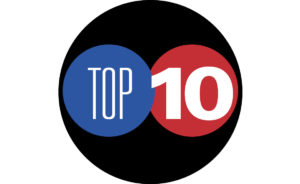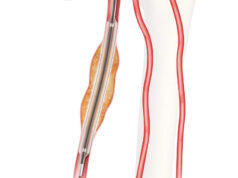 Among November’s most read Vascular Specialist stories were updates from the BEST-CLI trial in the form of new data and funding; a guest editorial calling for (better) training vis-à-vis counseling patients about their treatment options; news of positive results from the TRANSCEND study of a drug-coated balloon; and a write-up of a VEITHsymposium session centering on the merits of incorporating artificial intelligence into vascular practice.
Among November’s most read Vascular Specialist stories were updates from the BEST-CLI trial in the form of new data and funding; a guest editorial calling for (better) training vis-à-vis counseling patients about their treatment options; news of positive results from the TRANSCEND study of a drug-coated balloon; and a write-up of a VEITHsymposium session centering on the merits of incorporating artificial intelligence into vascular practice.
1. First data from BEST-CLI bring surgical bypass into the forefront of discussion for patients with high-quality great saphenous vein
The first results from the BEST-CLI randomized controlled trial of 1,830 patients show that surgical bypass with adequate single-segment great saphenous vein is a more effective revascularization strategy for patients with chronic limb-threatening ischemia who are deemed to be suitable for either an open or endovascular approach.
2. ‘Significant’ increase in atherectomy use in U.S. largely driven by office-based procedures, VQI data show
In the United States, atherectomy use in peripheral vascular interventions “more than doubled” from 2010 to 2019, with office-based procedures a “major driver” of this increase. This is according to published U.S. data from the Vascular Quality Initiative (VQI).
3. End-stage CLTI: Deep-vein arterialization procedure demonstrates amputation-free survival of 66% at six months
4. New analysis: Four multicenter trials support primary use of drug-coated balloons over bare metal stents in femoropopliteal lesions
A patient-level, propensity-adjusted comparison of three-year results from a quartet of prospective, multicenter trials support the primary use of drug-coated balloons versus bare metal stents in moderately complex femoropopliteal lesions, new data show.
5. BEST-CLI attracts $3.3m funding injection to continue data analysis
The Novo Nordisk Foundation has made a $3.3 million contribution toward the BEST-CLI (Best endovascular vs. best surgical therapy in patients with critical limb ischemia) clinical trial.
6. Vascular surgeons: The ‘oncologists’ of the surgical arena
Adam Tanious, MD, on why he is “always a bit apprehensive when it comes to any major vascular case, from a carotid endarterectomy to a complex bypass—and particularly open aortic surgery“.
7. SurVeil DCB demonstrates sustained durability of safety, efficacy endpoints in TRANSCEND
In the TRANSCEND clinical trial, the SurVeil drug-coated balloon (Surmodics) demonstrated “excellent efficacy and safety” out to 24-month follow-up, according to new data presented at Vascular Interventional Advances (VIVA) 2022 (Oct. 31–Nov. 3) in Las Vegas.
8. Virtual visits versus in-person: Telemedicine study detects ‘substantial’ cost savings for patients
Virtual consultations appear comparable to care received in-person when it comes to clinical outcomes as well as patient and practitioner satisfaction, a systematic review and meta-analysis of all primary studies evaluating virtual patient visits in vascular surgery has demonstrated.
9. VEITHsymposium panel probes ‘value’ of artificial intelligence in vascular surgery
One of the meetings focused on machine learning and artificial intelligence in vascular surgery with a panel discussion honing in on the cost-effectiveness and wider “value” of emerging technologies in this space.
10. CEA, TCAR ‘continue to show superior outcomes’ to TF-CAS
Researchers found that carotid endarterectomy (CEA) remains the most-used strategy in carotid revascularization, with CEA and transcarotid artery revascularization (TCAR) showing decreased odds of stroke or death compared to transfemoral carotid artery stenting (TF-CAS).












